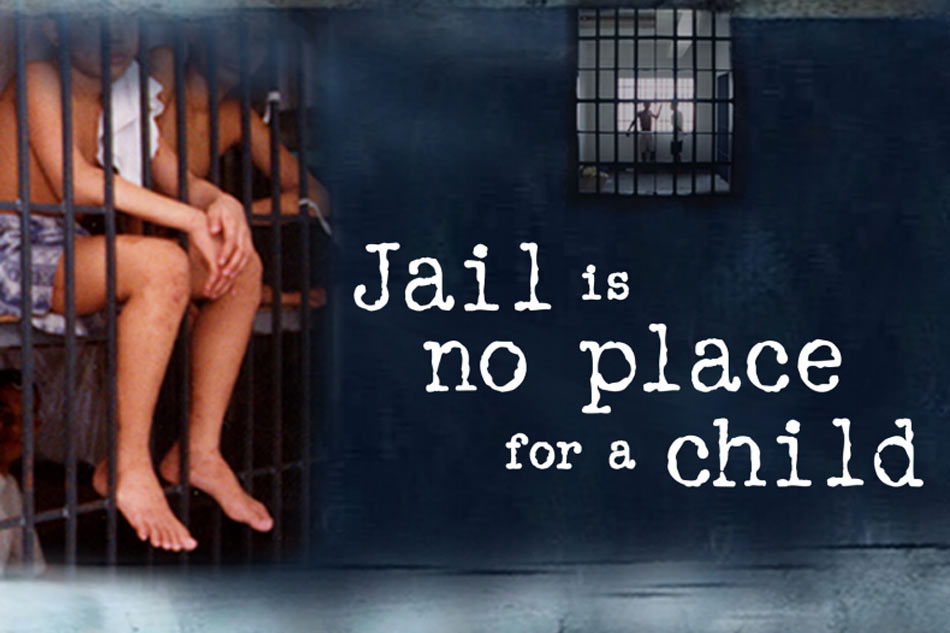UNICEF warns against lowering age of criminal liability | ABS-CBN
ADVERTISEMENT

Welcome, Kapamilya! We use cookies to improve your browsing experience. Continuing to use this site means you agree to our use of cookies. Tell me more!
UNICEF warns against lowering age of criminal liability
UNICEF warns against lowering age of criminal liability
ABS-CBN News
Published Jul 22, 2016 08:05 PM PHT
MANILA - The proposal to lower the age of criminal liability from 15 to nine years old is being opposed by the United Nations Children’s Emergency Fund (UNICEF), contending that biology plays a role in delinquency among young children.
MANILA - The proposal to lower the age of criminal liability from 15 to nine years old is being opposed by the United Nations Children’s Emergency Fund (UNICEF), contending that biology plays a role in delinquency among young children.
In a statement, UNICEF said neurobiology studies show that children don’t reach brain maturity until 16 years old. As such, reasoning and impulse of children younger than 16 years old are easily affected by their social environment.
In a statement, UNICEF said neurobiology studies show that children don’t reach brain maturity until 16 years old. As such, reasoning and impulse of children younger than 16 years old are easily affected by their social environment.
In addition, UNICEF said that what could also add to the mental and emotional damage of children is when they are exposed to violence, particularly if they are from dysfunctional families.
In addition, UNICEF said that what could also add to the mental and emotional damage of children is when they are exposed to violence, particularly if they are from dysfunctional families.
The organization stressed that lowering the age of criminal responsibility could even have “long-lasting damaging effects on their cognitive, psychosocial, and neurological health; harming their overall development.”
The organization stressed that lowering the age of criminal responsibility could even have “long-lasting damaging effects on their cognitive, psychosocial, and neurological health; harming their overall development.”
ADVERTISEMENT
“[Putting them to jail] further stigmatizes them as criminals and creates an environment that triggers repeat offense, often extending to adulthood. Children, especially the most marginalized and at risk, must be treated with a sense of dignity and self-worth,” the organization said.
“[Putting them to jail] further stigmatizes them as criminals and creates an environment that triggers repeat offense, often extending to adulthood. Children, especially the most marginalized and at risk, must be treated with a sense of dignity and self-worth,” the organization said.
Instead of imprisonment, UNICEF said treatment would be the best approach to have delinquent children be reintegrated into society.
Instead of imprisonment, UNICEF said treatment would be the best approach to have delinquent children be reintegrated into society.
UNICEF also noted that there has been a “steady improvement” in the juvenile justice and welfare system since Republic Act 9344, or the Juvenile Justice and Welfare Act, was passed in 2006.
UNICEF also noted that there has been a “steady improvement” in the juvenile justice and welfare system since Republic Act 9344, or the Juvenile Justice and Welfare Act, was passed in 2006.
In fact, the group said diversion programs and similar alternatives to detention or imprisonment has reduced offenses by up to 70 per cent.
In fact, the group said diversion programs and similar alternatives to detention or imprisonment has reduced offenses by up to 70 per cent.
“If children who have been exploited by criminal syndicates are penalized instead of the adults who had abused them, we fail to uphold the rights and well-being of children. If we fail to understand the underlying reasons why they commit crimes, we fail children,” the group said.
“If children who have been exploited by criminal syndicates are penalized instead of the adults who had abused them, we fail to uphold the rights and well-being of children. If we fail to understand the underlying reasons why they commit crimes, we fail children,” the group said.
House Speaker Pantaleon Alvarez and Capiz Representative Fredenil Castro have authored House Bill 002 that seeks to lower the age of criminal liability from 15 years old to just nine, citing that criminal syndicates are using much younger children to circumvent existing laws.
House Speaker Pantaleon Alvarez and Capiz Representative Fredenil Castro have authored House Bill 002 that seeks to lower the age of criminal liability from 15 years old to just nine, citing that criminal syndicates are using much younger children to circumvent existing laws.
ADVERTISEMENT
ADVERTISEMENT



